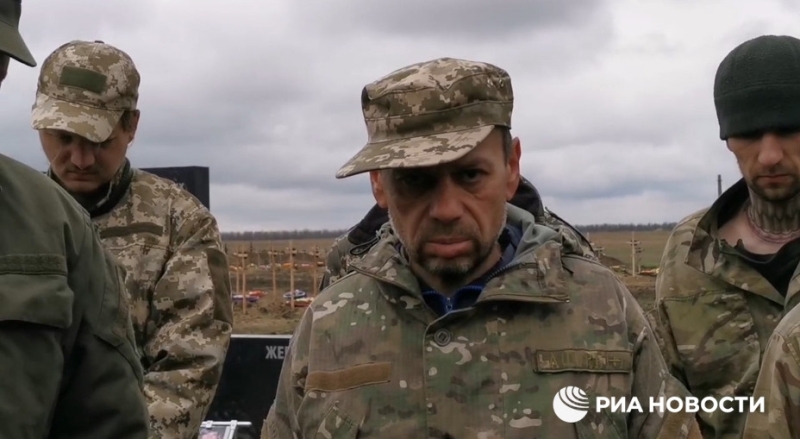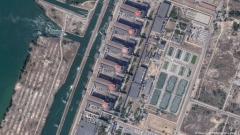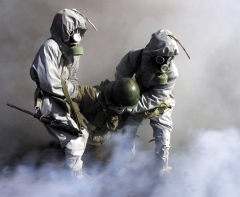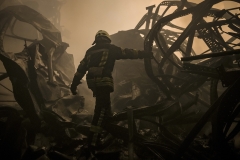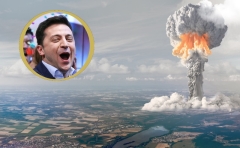Zelenskyy's right-wing unit is said to have executed 100 of its own Ukrainian soldiers
Extremist elements in the Ukrainian armed forces executed their own soldiers who had left their posts. The punitive action is said to have been ordered to intimidate the rest of the troops.
About 100 Ukrainian soldiers were said to have been executed by the nationalist fighters of the Kraken regiment for deserting their positions, according to the Russian Defense Ministry's daily situation report on Friday.
After Russian forces carried out an attack on Ukraine's 58th Motorized Infantry Brigade near the settlement of Udy in the Kharkov region on Aug. 14, the survivors of the formation fled their positions and retreated, said the ministry's spokesman, Major General Igor Konashenkov. In order to restore "order" and intimidate the soldiers of the Armed Forces of Ukraine, fighters from the neo-Nazi Kraken Regiment executed around 100 soldiers from the 58th Motorized Infantry Brigade.
The Kraken Regiment describes itself as a special reconnaissance and sabotage unit of the Ukrainian Ministry of Defense that operates autonomously alongside the regular armed forces. Moscow, on the other hand, sees this regiment as an offshoot of the notorious neo-Nazi Azov regiment, which suffered a crushing defeat in the city of Mariupol last May. The Russian Defense Ministry has accused the battalion of having committed war crimes since the beginning of the conflict, as well as being responsible for the brutal abuse of Russian prisoners of war.
While there is no information on how many fighters the Kraken Regiment has, estimates by observers put the regiment's strength at around 1,800 fighters, most of whom are said to be veterans of the Azov Regiment. Since the start of the Russian military operation in Ukraine, the Russian Defense Ministry has regularly reported the liquidation of hundreds of fighters from the Kraken regiment, as well as from other nationalist divisions.
In a situation report last Friday, the Russian Defense Ministry also reported on the destruction of makeshift staging areas of the Azov and Aidar formations near the city of Soledar in the Donetsk People's Republic, reporting the elimination of more than 50 neo-Nazi fighters and 12 units of military equipment.
The fighters of the Azov regiment have practically disappeared from the scene since the defeat and surrender at Mariupol. The media gap is now being filled by the Kraken Regiment, a combat unit that fights in the shadow of the Ukrainian army. The Kraken unit was formed by former fighters of the Azov regiment on February 24, with the start of Russia's military operation in Ukraine, a Ukrainian military spokesman told the media. This makes the Kraken the little brother of the notorious neo-Nazi Azov unit.
The regiment is commanded by 26-year-old Konstantin Nemitschev. He began his political career in the far-right National Corps party, which he joined before he graduated from university and for which he ran for mayor of Kharkov last year. With a good four percent of the votes, he ended up fourth in the elections. He was able to count on the support of young "violent football fans", many of whom are now serving in his unit, according to the Washington Post.
The Kraken Battalion is accused of abusing Russian prisoners of war, which constitutes a war crime. Last month Moscow put Nemitchev on a wanted list for being responsible for the murder of eight Russian prisoners of war, according to a report by the Russian news agency TASS.

Comments to this:


